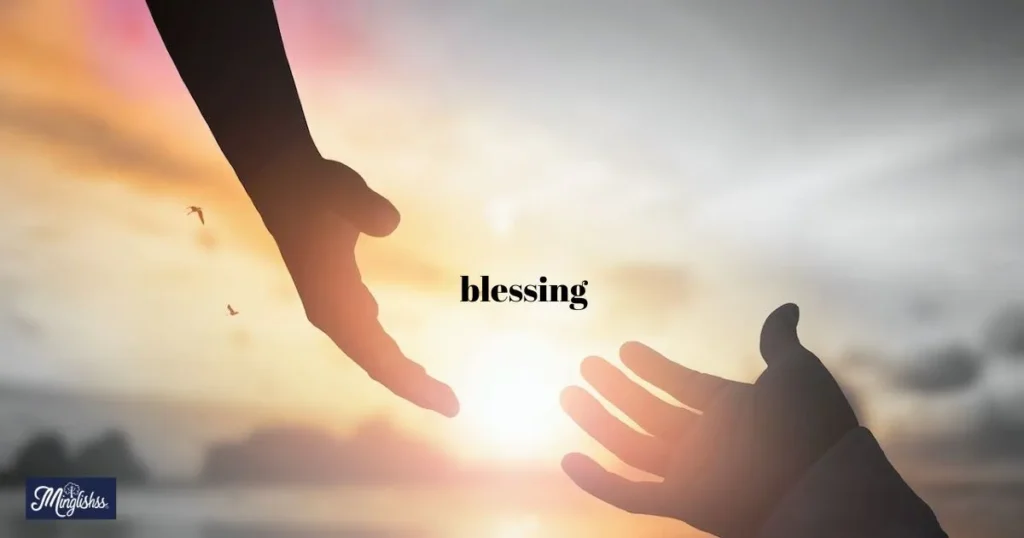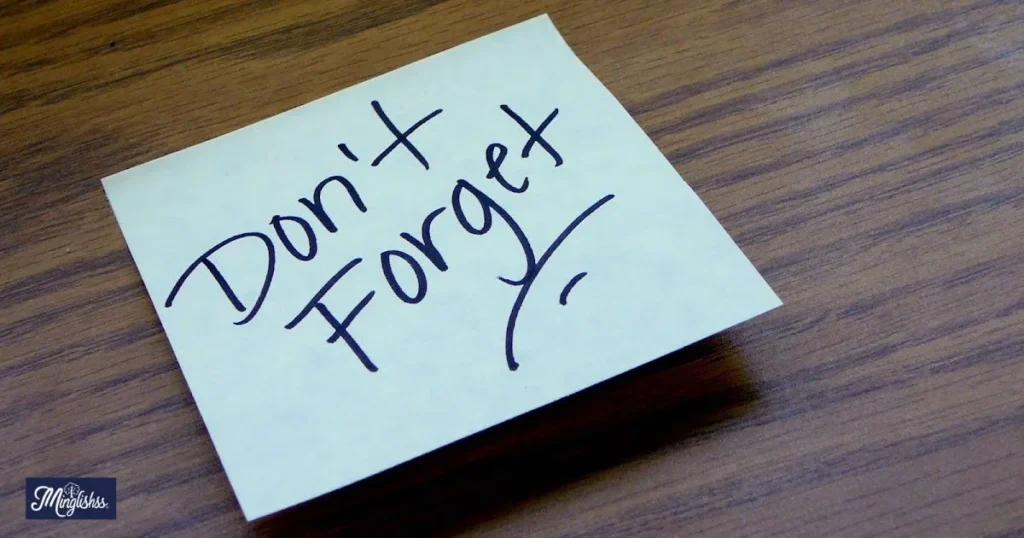“Gratitude is the best way to honor those who support us during difficult times.”
When faced with a loss or a difficult situation, receiving sympathy from others can provide comfort and a sense of connection. Whether through heartfelt words, gestures, or gifts, the support of family, friends, and even strangers can be deeply healing.
It’s essential to acknowledge and express gratitude for such kindness, but sometimes a simple “thank you” may not fully convey the depth of your appreciation. Finding meaningful ways to say thank you for sympathy shows not only your gratitude but also helps strengthen relationships during a challenging period.
In moments of grief or hardship, many people struggle to find the right words to express their emotions. Saying thank you for sympathy can be difficult, especially when the feelings are so overwhelming. If you’re unsure how to express your thanks, there are many creative and heartfelt alternatives that can resonate more with your emotions and the situation. These alternatives will allow you to show gratitude in a way that feels sincere and meaningful.
This blog explores 35 thoughtful and considerate ways to say thank you for your sympathy. We’ll offer different scenarios and examples to help guide you in choosing the most appropriate expressions for your situation.
Whether you are responding to someone who sent flowers, attended a service, or simply offered emotional support, you’ll find a variety of options to suit your needs. Let’s take a closer look at these expressions of gratitude.
Your kindness means the world to me.”
- Scenario: When someone’s thoughtful actions have deeply impacted you during a difficult time.
- Subject Explanation: This phrase expresses deep appreciation, showing that their gesture has had a profound emotional effect on you.
- Additional Tip: Use this when someone has gone out of their way to help you, even in small ways. It shows gratitude for their effort and care.
“I’m so grateful for your support.”
- Scenario: Use when someone has provided emotional or practical assistance.
- Subject Explanation: A simple and direct way to thank someone for being there during a tough time.
- Additional Tip: This phrase can also be used in a message or card to acknowledge their ongoing presence in your life.
“Thank you for being there for me.”

- Scenario: When someone has offered continuous support, emotionally or practically.
- Subject Explanation: This shows appreciation for someone who has consistently stood by you.
- Additional Tip: It’s especially useful for those who have been a strong presence during your emotional recovery.
“Your compassion has made a difference.”
- Scenario: Use this when someone’s empathy has significantly eased your emotional pain.
- Subject Explanation: This phrase highlights how their heartfelt actions helped during a challenging time.
- Additional Tip: You can personalize this by mentioning specific actions they took to show compassion.
“I am truly touched by your sympathy.”
- Scenario: When someone’s sympathy feels especially heartfelt.
- Subject Explanation: This acknowledges the deep emotional impact of their support.
- Additional Tip: This phrase works well if the person has gone beyond a simple gesture, offering profound comfort.
“Thank you for your thoughtful words.”
- Scenario: When someone has offered encouraging or comforting words.
- Subject Explanation: Acknowledges how their words helped ease your emotional burden.
- Additional Tip: This can be used in response to both verbal and written condolences.
“I appreciate your kindness during this time.”
- Scenario: When someone has provided consistent support during a challenging period.
- Subject Explanation: A simple but effective way to express gratitude for their kindness.
- Additional Tip: Use this if the person’s actions have been steady and reliable over a period.
“Your support has been a great comfort.”
- Scenario: When someone’s actions or presence have been soothing during tough times.
- Subject Explanation: Expresses how their support has helped you emotionally heal.
- Additional Tip: It’s especially powerful after receiving physical support, such as a meal or a helping hand.
“I can’t thank you enough for your kindness.”
- Scenario: When you feel words aren’t enough to express how much their support has meant.
- Subject Explanation: Emphasizes deep gratitude for someone’s ongoing care and effort.
- Additional Tip: Ideal when you want to show how much you appreciate their help, even if it’s hard to express.
Other Ways to Say “That’s So Nice of You”
“You’ve been a great source of comfort to me.”
- Scenario: When someone’s consistent support has helped you feel emotionally at ease.
- Subject Explanation: This highlights the emotional relief their actions or presence provided.
- Additional Tip: Use when someone has offered steady emotional support over a long period.
“Your kind words have meant so much.”
- Scenario: When someone’s words of comfort have helped you through a difficult time.
- Subject Explanation: Recognizes how their words have had a positive effect on your emotional well-being.
- Additional Tip: It’s useful for acknowledging what someone said in a card or during a conversation.
“I feel so blessed to have your support.”

- Scenario: When you feel grateful to have someone by your side during a tough time.
- Subject Explanation: Expresses gratitude for their ongoing emotional or physical support.
- Additional Tip: This is a great phrase for close friends or family who have been pillars of support.
“Your sympathy has lightened my load.”
- Scenario: When someone’s help has made a difficult period easier to manage.
- Subject Explanation: Acknowledges how their support has helped reduce your emotional burden.
- Additional Tip: This phrase works well when someone has helped you with day-to-day tasks during a challenging time.
“Thank you for your generous heart.”
- Scenario: When someone has shown an especially generous gesture.
- Subject Explanation: This highlights how their generosity has had a positive impact on you.
- Additional Tip: Ideal for expressing gratitude when someone has done something significant to help you, like providing for your needs.
“You’ve made this hard time easier to bear.”
- Scenario: When someone’s actions have made it easier for you to cope with your grief or struggles.
- Subject Explanation: Expresses that their support has been a relief during a challenging moment.
- Additional Tip: Great when someone has provided both emotional and practical support, such as assisting with funeral arrangements.
“I appreciate your emotional support during this time.”
- Scenario: When someone has listened to your feelings and offered comforting words.
- Subject Explanation: Acknowledges the emotional comfort provided through conversations and support.
- Additional Tip: Works well when someone has been a patient listener, offering empathy and understanding.
“Your kindness is a light in a dark time.”
- Scenario: When someone’s support has helped you find hope during a difficult period.
- Subject Explanation: This expresses how their kindness has given you hope and relief during tough times.
- Additional Tip: Ideal for someone who has been a shining example of support, offering emotional strength when you needed it most.
“Thank you for standing by me.”

- Scenario: When someone has shown loyalty and been there for you during a difficult situation.
- Subject Explanation: This phrase highlights someone’s consistent presence and support.
- Additional Tip: Use when someone has remained steadfast by your side, even in moments of uncertainty or grief.
“Your words brought me peace.”
- Scenario: When someone’s words have given you emotional comfort and calmed your mind.
- Subject Explanation: Acknowledges that their words had a positive, soothing effect on you.
- Additional Tip: Best used when someone has said something particularly comforting or reassuring.
“I’m thankful for your understanding.”
- Scenario: When someone has been empathetic and patient with you.
- Subject Explanation: Recognizes how their understanding has eased the burden of a difficult situation.
- Additional Tip: Perfect for someone who has been considerate of your emotions and needs.
“I am touched by your kindness and care.”
- Scenario: When someone’s actions or words have left a deep impression on you.
- Subject Explanation: Acknowledges the personal impact their kindness has had on your emotional state.
- Additional Tip: Use when someone has been especially considerate in how they support you.
“Thank you for offering such comforting support.”
- Scenario: When someone has provided physical or emotional comfort during a tough time.
- Subject Explanation: Recognizes how their specific actions have brought you comfort.
- Additional Tip: Ideal when the support you received was particularly kind and thoughtful.
“I’m truly appreciative of your thoughtful support.”
- Scenario: When someone’s actions have been deeply considerate and meaningful.
- Subject Explanation: Acknowledges how much you value their thoughtfulness in providing help.
- Additional Tip: Use when someone has gone out of their way to offer specific assistance during your hard time.
“Thank you for your loving and caring nature.”
- Scenario: When someone’s nature has been especially kind and caring toward you.
- Subject Explanation: This highlights their natural ability to provide comfort and sympathy.
- Additional Tip: Great for family or close friends who offer emotional and physical support during difficult times.
“I am so thankful for your comforting presence.”
- Scenario: When someone’s physical presence has brought you peace during a challenging time.
- Subject Explanation: Expresses how comforting it has been just to have them nearby.
- Additional Tip: Works well when someone has not only been emotionally supportive but physically present during tough moments.
“Your sympathy is a true blessing.”

- Scenario: When someone’s sympathy has had a significant, positive effect on you.
- Subject Explanation: Emphasizes how important their support has been to you.
- Additional Tip: Use when you feel that their support has helped you find strength during your difficulties.
“Thank you for your timely support.”
- Scenario: When someone offers help exactly when you need it the most.
- Subject Explanation: Acknowledges how helpful it was that their support came at the right moment.
- Additional Tip: Perfect for situations where timely support made a significant difference.
“I’m forever grateful for your kindness.”
- Scenario: When someone’s kindness has been especially meaningful or impactful.
- Subject Explanation: This phrase communicates deep, lasting gratitude for their support.
- Additional Tip: Ideal when you want to express enduring appreciation for their actions.
“Your support means more than you know.”
- Scenario: When you want to convey that their support has had a bigger impact than they may realize.
- Subject Explanation: Highlights how their actions have been more valuable than they may understand.
- Additional Tip: Great for expressing how much their presence or actions helped, even if you haven’t expressed it fully.
“Your care has been a healing balm for my heart.”
- Scenario: When someone’s support has had a deeply healing effect on your emotional state.
- Subject Explanation: A metaphorical way to show that their actions have brought emotional healing.
- Additional Tip: Perfect for close friends or family who have given you not only physical help but deep emotional comfort.
“You’ve brought light to my life during this dark time.”
- Scenario: When someone’s presence or actions have brought hope or positivity into your life during a tough moment.
- Subject Explanation: A beautiful way to express gratitude for someone who helped you find light during darkness.
- Additional Tip: Works well if someone has been a consistent source of positivity.
“Thank you for being a shoulder to lean on.”
- Scenario: When someone has provided a supportive presence for you to rely on during a tough time.
- Subject Explanation: Recognizes their emotional support as something reliable and comforting.
- Additional Tip: This phrase is especially useful when someone has been a great listener and offered comfort during your struggles.
“I appreciate your strength, which has given me strength.”
- Scenario: When someone’s strength has helped you stay strong during difficult moments.
- Subject Explanation: Acknowledges that their inner strength has inspired or supported you in your own challenging times.
- Additional Tip: This phrase works well for someone who has offered not just physical or emotional help but has shown resilience themselves.
“Your words gave me the courage to move forward.”
- Scenario: When someone’s words of encouragement have helped you overcome emotional hurdles.
- Subject Explanation: Recognizes that their motivational words have had a powerful impact on your ability to move on.
- Additional Tip: Use this when someone’s words have helped you navigate your emotions during a transitional time.
“I’ll never forget your support.”

- Scenario: When someone’s help has been so meaningful that you want to show lasting appreciation.
- Subject Explanation: This is a way to express that their support will always be remembered.
- Additional Tip: Great for expressing long-term gratitude, especially after receiving significant support during a difficult time.
Pros and Cons of Different Ways to Say Thank You for Sympathy
Pros:
- Variety: Using different expressions allows you to personalize your thank-you messages to match the situation and the relationship you share with the person offering sympathy.
- Emotional Impact: Thoughtful expressions can have a more lasting emotional impact than a simple thank-you, making the person feel truly appreciated.
- Building Relationships: When you acknowledge someone’s support in a meaningful way, it strengthens your connection with them.
Cons:
- Overuse: Repeatedly using the same phrase can make your appreciation seem less sincere, so it’s important to choose the right words for each individual.
- Potential Awkwardness: Sometimes, a more formal or heartfelt expression might feel awkward if the relationship with the person isn’t particularly close.
Conclusion
Expressing gratitude for sympathy is more than just saying “thank you.” There are countless ways to show appreciation, and the right words can bring comfort to both you and the person who offered support.
Whether you are thanking someone for their thoughtful message, kind gesture, or emotional support, the key is to personalize your response and let the person know that their care truly made a difference. Using these35 different ways to say thank you for sympathy will help you convey your feelings and acknowledge the kindness you’ve received.
Answer the key Questions
1. What are some simple ways to express gratitude for sympathy?
A simple way to say thank you for sympathy is to use phrases like “I truly appreciate your kind words,” “Thank you for being there for me,” or “Your support means so much to me.” These phrases are easy to say and show genuine appreciation for the sympathy you’ve received.
2. How do I thank someone for their sympathy if I don’t know them very well?
If you don’t know the person well, it’s still important to express gratitude. A simple phrase like “I appreciate your sympathy” or “Thank you for your kind thoughts” is polite and conveys your thanks without being overly personal.
3. Is it necessary to send a thank-you note for sympathy?
While it’s not strictly necessary, sending a thank-you note is a thoughtful and personal way to show your appreciation. A handwritten note, email, or message can make the person feel valued and recognized for their support.
4. Can I express gratitude for sympathy through social media?
Yes, you can express your gratitude on social media, especially if the person reached out to you there. A post or direct message like, “Thank you all for your kind words and support during this difficult time” is a great way to acknowledge the sympathy you’ve received.
5. What if I don’t feel like talking or responding to sympathy messages?
If you’re not ready to respond or talk, it’s okay to take some time. You can respond when you feel up to it, or simply send a brief message like, “Thank you for your understanding during this time.” People will understand that you need space to heal.

Hi, I’m Ethan Matthews: I make English easy with my clear and simple teaching style. I love helping learners feel confident in every lesson.










